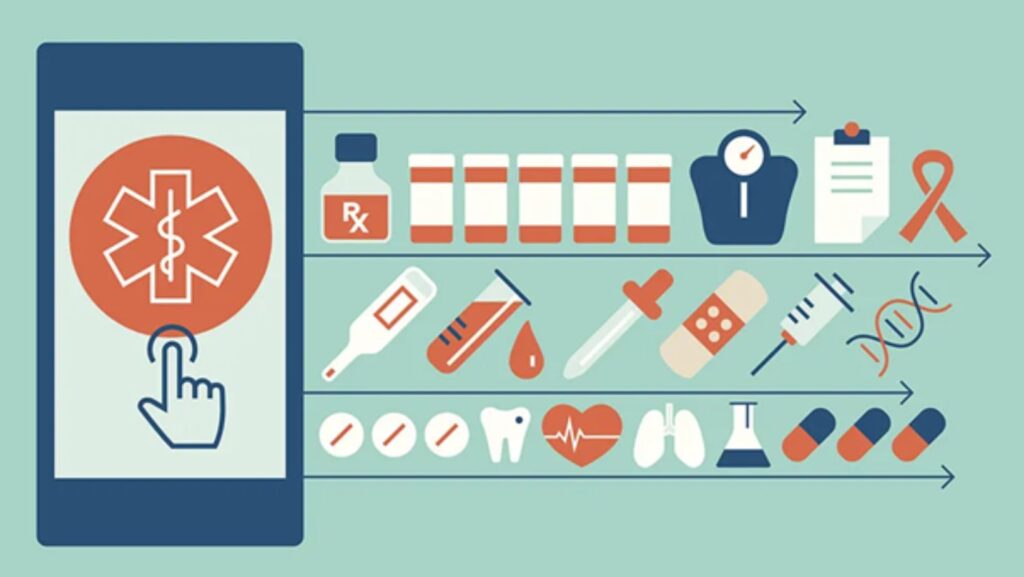Health apps have revolutionized the healthcare sector. Doctors, caregivers, and patients have all recognized the capabilities and benefits of this software. Companies providing telemedicine app development services are receiving increasing orders for various types of applications. There is specialized software created exclusively for internal use by medical institutions, and there are products designed for a broad range of users.
Patient Portals
These apps provide patients with full access to all their information. They store data on examinations, prescriptions, and test results. In addition to the database, such portals offer extended functionality, including:
- scheduling non-urgent appointments with doctors
- send a message to the doctor or schedule a consultation
- renew prescriptions for medications
- fill out necessary forms, renew existing service contracts
Such patient portals are usually developed by specialists commissioned by medical institutions. Clients determine the interface, set of features, and appearance of the app. The software must fully meet the needs of both the institution and its patients.
Pharmacy Apps
These are convenient services that allow users to purchase any necessary medications without leaving home. Typically, you can order them for delivery or pick them up at the nearest store. Such apps also enable you to order rare medications and buy prescription drugs prescribed by a doctor.
Pharmacies often reward their customers with pleasant bonuses and discounts through their apps. Here, you can find instructions for all medications and learn about new developments in the pharmaceutical field.
Specialized Apps
These software products are created by specialists to communicate with their patients. The most popular and frequently used services are:
- For pregnant women. These apps allow expectant mothers to upload their health data into the system, which is immediately visible to their doctor. While it cannot replace an in-person examination, it enables the doctor to monitor the woman’s condition closely and quickly notice any deviations from the norm.
- For ophthalmologists. The functionality allows for high-quality photos of the eyes if they are inflamed, swollen, etc. The doctor can immediately assess the patient’s condition, prescribe medication, or schedule an appointment.
- For dietitians. These doctors can use an app to track how well a patient follows dietary recommendations and monitor their progress. If the data received by the dietitian is unsatisfactory, they can adjust the diet online, provide new recommendations, and, if necessary, write a referral for further examination.
Almost any doctor can monitor their patients through an app: endocrinologists for diabetics, neurologists for hypertensive patients, and so on. These apps are developed specifically to meet the needs of a particular doctor and their patients.
Mental Health Apps
Not long ago, such apps were limited to services that allowed doctors to conduct consultations and provide advice online. Today, these apps also include software products that track stress levels and mood. There are also programs for meditation and breathing exercises. These practices have a positive impact on mental health, so they can be considered part of healthcare software.
Using such apps is convenient anywhere in the world, which is why their popularity is growing.




More Stories
Interactive Economies: What Game Currencies Teach Us About Real-World Value
The Seamless Future: How Tech and UX Are Transforming Gaming and Casino Platforms
Mitigating Risks of Uncontrolled Gambling: Common Issues and Tips to Remain Responsible